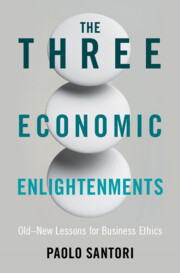Refine search
Actions for selected content:
559 results
Chapter 1 - World Literature as Free Trade
-
- Book:
- Five Economies of World Literature
- Published online:
- 09 December 2025
- Print publication:
- 31 December 2025, pp 16-48
-
- Chapter
- Export citation

Five Economies of World Literature
-
- Published online:
- 09 December 2025
- Print publication:
- 31 December 2025

State Platform Capitalism
- The United States, China, and the Global Battle for Digital Supremacy
-
- Published online:
- 05 December 2025
- Print publication:
- 08 January 2026
-
- Element
-
- You have access
- Open access
- HTML
- Export citation
Diplomacy at Work: The South African Worker, US Multinationals, and Transnational Racial Solidarity
-
- Journal:
- Enterprise & Society , First View
- Published online by Cambridge University Press:
- 27 November 2025, pp. 1-10
-
- Article
-
- You have access
- Open access
- HTML
- Export citation
Introduction
-
- Book:
- Debts Unpaid
- Published online:
- 04 November 2025
- Print publication:
- 20 November 2025, pp 1-19
-
- Chapter
- Export citation
Conclusion
-
- Book:
- Debts Unpaid
- Published online:
- 04 November 2025
- Print publication:
- 20 November 2025, pp 213-218
-
- Chapter
- Export citation
6 - Utopias, Dystopias, Labor, and Socialist “Contradictions”
- from Part II - Socialist Dreams
-
- Book:
- Socialist De-Colony
- Published online:
- 10 November 2025
- Print publication:
- 20 November 2025, pp 236-265
-
- Chapter
-
- You have access
- Open access
- HTML
- Export citation
Cultures of Power: Electrification, Politics, and Visibility in Greater Los Angeles
-
- Journal:
- Enterprise & Society , First View
- Published online by Cambridge University Press:
- 19 November 2025, pp. 1-11
-
- Article
-
- You have access
- Open access
- HTML
- Export citation
What Is Ideological Capture and How Do We Measure It? Using Antitrust Reform to Understand Expert–Public Cleavages
-
- Journal:
- Perspectives on Politics , First View
- Published online by Cambridge University Press:
- 17 November 2025, pp. 1-21
-
- Article
-
- You have access
- Open access
- HTML
- Export citation
2 - Theorising the State and Transitions
-
- Book:
- States of Transition
- Published online:
- 31 October 2025
- Print publication:
- 13 November 2025, pp 25-58
-
- Chapter
- Export citation
11 - China’s Coming Era of Slow Growth
-
-
- Book:
- The Arc of the Chinese Economy
- Published online:
- 30 October 2025
- Print publication:
- 13 November 2025, pp 288-316
-
- Chapter
- Export citation
2 - Genovesi, Kant, and Smith
- from Part I - Political Economy, Civil Economy, Moral Economy
-
- Book:
- The Three Economic Enlightenments
- Published online:
- 04 November 2025
- Print publication:
- 13 November 2025, pp 23-72
-
- Chapter
- Export citation
10 - The “Summer of 2021” and the Trajectory of China’s Economic System
-
-
- Book:
- The Arc of the Chinese Economy
- Published online:
- 30 October 2025
- Print publication:
- 13 November 2025, pp 256-287
-
- Chapter
- Export citation
9 - The Political Economy of Common Prosperity
-
-
- Book:
- The Arc of the Chinese Economy
- Published online:
- 30 October 2025
- Print publication:
- 13 November 2025, pp 239-255
-
- Chapter
- Export citation
17 - Further Excursions
- from Part III - The Indirect Approach
-
- Book:
- Animal Economics
- Published online:
- 18 November 2025
- Print publication:
- 13 November 2025, pp 300-323
-
- Chapter
- Export citation

Socialist De-Colony
- Black and Soviet Entanglements in Ghana's Cold War
-
- Published online:
- 10 November 2025
- Print publication:
- 20 November 2025
-
- Book
-
- You have access
- Open access
- Export citation
4 - De-democratization and Discontent: Backing away from Economic Liberalism, 1954–1955
-
- Book:
- The Rise and Fall of Turkey's Democrat Party
- Published online:
- 23 October 2025
- Print publication:
- 06 November 2025, pp 144-179
-
- Chapter
- Export citation

The Three Economic Enlightenments
- Old–New Lessons for Business Ethics
-
- Published online:
- 04 November 2025
- Print publication:
- 13 November 2025
War of movement: The political economy of conflict escalation in Colombia, 1990–8
-
- Journal:
- Review of International Studies , First View
- Published online by Cambridge University Press:
- 04 November 2025, pp. 1-20
-
- Article
-
- You have access
- Open access
- HTML
- Export citation
Introduction
-
- Book:
- Democracy and Inequality in India
- Published online:
- 11 October 2025
- Print publication:
- 30 October 2025, pp 1-12
-
- Chapter
- Export citation
